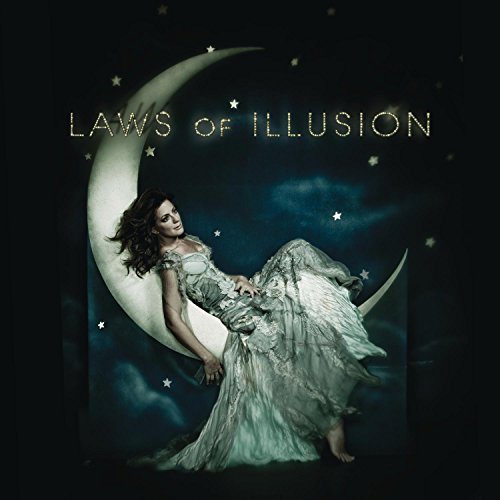
Sarah McLachlan
Laws Of Illusion
Release Date: Jun 15, 2010
Genre(s): Folk, Indie/Alternative
Record label: Arista
Music Critic Score
How the Music Critic Score works
Album Review: Laws Of Illusion by Sarah McLachlan
Acceptable, Based on 5 Critics
Based on rating B
Sarah McLachlan’s sound hasn’t changed much in the seven years since Afterglow, but it does feel less sweeping than usual (exaltations like ”It’s you who gave me fire” notwithstanding) on Laws of Illusion. ”Loving You Is Easy” is spry and jaunty, and ”U Want Me 2” explores her favorite theme (”the distance between us”) with the austere prettiness of Aimee Mann. B Download These:Lush, stately U Want Me 2 at amazon.comMonogamy-drunk Loving You Is Easy at amazon.com See all of this week’s reviews .
Based on rating 6/10
It’s been seven years since Sarah McLachlan released Afterglow, her last album of original material. That’s a lifetime in the pop world, perhaps, but McLachlan handles her absence well, filling Laws of Illusion with the same sort of adult contemporary fare that made her a star in the first place. The market has changed since McLachlan’s late-‘90s heyday; pop starlets like Lady Gaga and Taylor Swift are now among the industry’s most highly prized female songwriters, making McLachlan seem a bit staid and outdated by comparison.
Based on rating 2.0/5
It’s been a full seven years since Sarah McLachlan’s Afterglow, but it’s hard to tell by listening to her latest album, Laws of Illusion. Adhering so closely to McLachlan’s trademark style, and so divorced from of-the-moment trends in pop music, the album sounds like it could be placed at almost any point in the chronology of her catalogue. For McLachlan’s still-devoted fans, that Laws of Illusion sounds exactly the way one would expect a new Sarah McLachlan album to sound won’t present much of a problem.
Based on rating 4/10
For a musician whose record sales have topped 40 million worldwide, Sarah McLachlan has proven surprisingly easy to forget about. The lengthy gaps between her album releases must surely exacerbate this process; her latest release, Laws of Illusion, is her first album of all-new material since 2003’s aptly-titled Afterglow, itself a six-year shadow of McLachlan’s commercial and artistic peak, 1997’s Surfacing. In the increasingly frantic musical marketplace, such long absences from the fray do not lend themselves to solidifying one’s brand.
Opinion: Excellent
McLachlan’s post-divorce album pleasingly isn’t weighed down by self-pity. Adrian Edwards 2010 This is Sarah McLachlan’s first album for four years, seven if one discounts her Grammy-nominated Christmas covers collection of 2006, Wintersong, to focus on original material. The Canadian singer-songwriter’s crystal-clear mezzo-soprano voice has changed little, but a failed marriage in the interim has become the inspiration for an autobiographical collection of songs which express the breadth of emotions that follow such circumstances.

